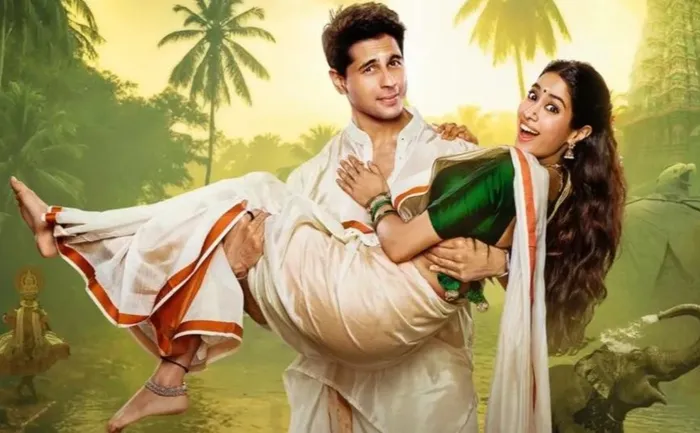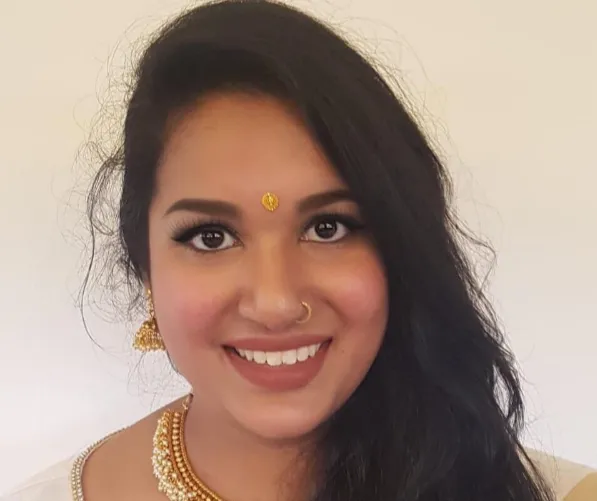Param Sundari: a Bollywood romance under fire for cultural insensitivity
Struggle with authenticity

Janhvi Kapoor and Sidharth Malhotra.
Image: Supplied
AS THE end of August brings a flurry of Bollywood releases, most films are generating buzz for their star power or box-office potential. Yet one title is standing out for all the wrong reasons: Param Sundari, starring late Queen of the South, Sridevi Kapoor’s daughter Janhvi Kapoor and Sidharth Malhotra.
While billed as a glossy cross-cultural romance, the film has quickly become a lightning rod for debates about cultural representation, authenticity, and sensitivity. The backlash surrounding Param Sundari immediately recalls Chennai Express (2013), where Shah Rukh Khan’s North Indian character navigated a Tamil town filled with exaggerated accents, ritualistic customs, and over-the-top caricatures.
Both films reduce rich regional identities into visual spectacle and comedic shorthand.
In Param Sundari, Kerala’s culture is distilled into jasmine flowers, Mohiniyattam dance sequences, temple jewellery, and dishes like dosa and idli, and Janhvi Kapoor’s heavily stylised Malayalam fake and forced accent, which has been criticised as reductive and inauthentic. Much like Chennai Express, where non-Tamil actors played native roles with exaggerated accents, Param Sundari casts a North Indian actor in a deeply regional context.
Kapoor’s attempt at a Malayalam accent has been widely ridiculed, highlighting Bollywood’s tendency to prioritise star power over authenticity.
Singer RJ Pavithra Menon publicly questioned why a real Malayali actor wasn’t cast, arguing that Kapoor’s portrayal misrepresents how Malayalis actually speak. She voiced her frustration, noting that such depictions do not reflect the reality of women in Kerala. When her critical video was removed from Instagram, it sparked further debate about how dissenting voices are often silenced in digital spaces.
A flirtatious church scene in the trailer has drawn criticism from a Christian organisation, which condemned it as disrespectful to religious sentiments. Complaints have been lodged with the Central Board of Film Certification and the Ministry of Information & Broadcasting, demanding its removal. Promotional events haven’t helped either.
During a Dahi Handi celebration, Kapoor mistakenly associated the festival with Independence Day, while her and Malhotra’s private jet visit to the Tirumala Temple sparked accusations of environmental insensitivity and performative spirituality.
Bollywood has long struggled with portraying South Indian culture authentically. From Chennai Express to Param Sundari, the pattern is clear: regional identities are often exoticised, caricatured, or commodified for spectacle. Social media backlash and the vocal criticism of creators like Pavithra Menon suggest that audiences are no longer passive; they demand respect, nuance, and authenticity.
Param Sundari may be a visually appealing romance, but its reception demonstrates that Bollywood’s reliance on stereotypes and superficial cultural markers are increasingly untenable. In the era of instant scrutiny, glamour alone cannot shield a film from accountability. The broader conversation touches on Bollywood’s long-standing habit of collapsing diverse South Indian identities into a single, exaggerated “Madrasi” stereotype - often for comic effect.
So yes, the accents in Param Sundari are not just exaggerated - they’re part of a larger pattern that many viewers are increasingly calling out. All that said, I’m still keen to head to the cinemas -hopefully it makes its way to Cape Town - to see and hear what all the fuss is about and judge for myself whether the film is worth the conversation it has sparked.

Saranya Devan.
Image: Supplied
Saranya Devan is a theatre-maker, dance performer, academic and proud Tamilian. She holds an MA in dance from UCT, and a MA in Bharatha Natyam from the University of Madras.
** The views expressed do not necessarily reflect the views of IOL or Independent Media.
THE POST